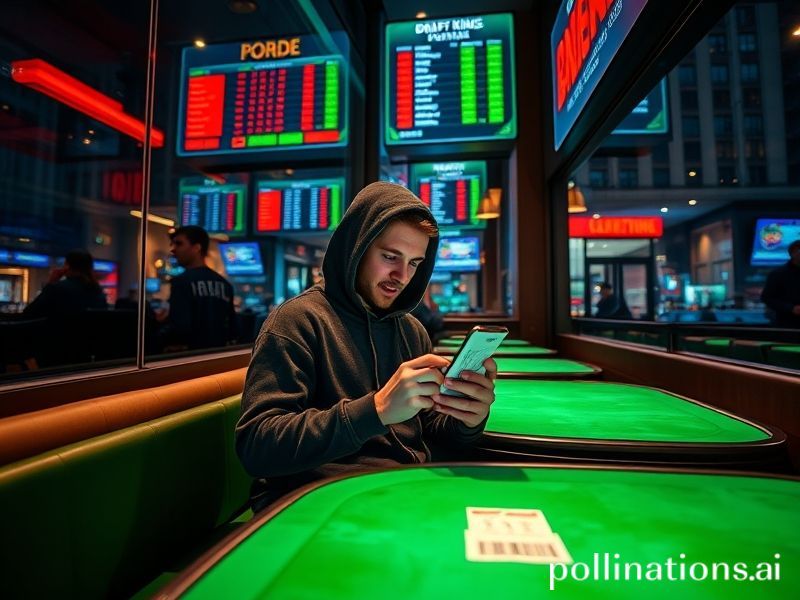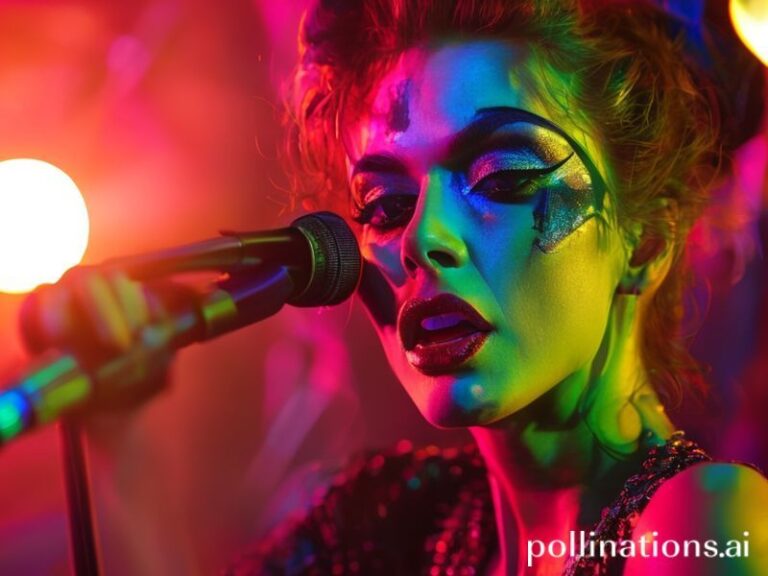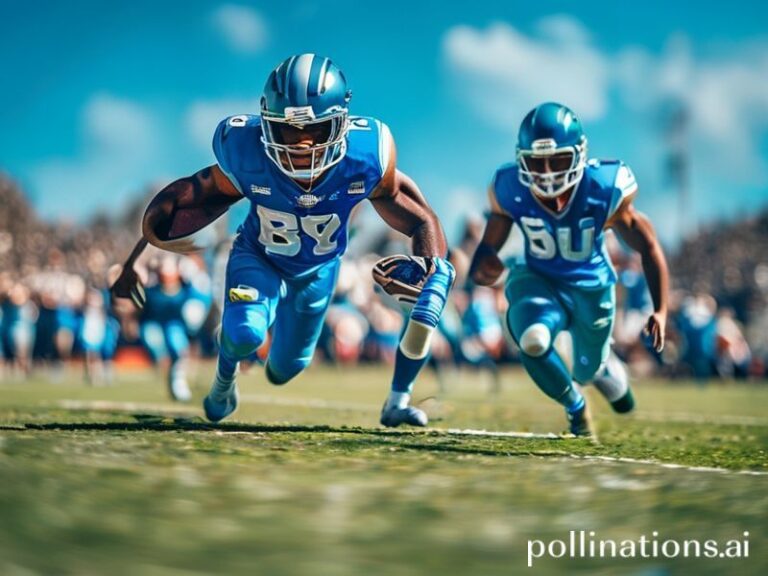DraftKings Goes Global: How a Boston App Monetized Planet Earth’s Hope and Despair
DraftKings: How a Boston Start-Up Turned the World’s Oldest Vice into a Stock Ticker
By our correspondent, still recovering from last night’s “risk-free” bet on Peruvian llama racing
BOSTON—MASSACHUSETTS, USA—It began, as most moral panics do, with a PowerPoint deck. Somewhere around 2012, three guys who looked like they still got carded at Applebee’s convinced venture capitalists that putting a slot machine inside a telephone was “disruption” rather than “a relapse with Wi-Fi.” A decade later, DraftKings has metastasized from daily fantasy bro-culture into a trans-Atlantic, 24-hour, 365-day casino that never has to mop up the vomit. The house always wins; now the house is also your pocket, your commute, your insomnia, and—if you live in Ontario or Wolverhampton—your corner pub.
Globally, the math is elegant in its malevolence. Humans have wagered since the first Sumerian rolled knucklebones, but never before has the bookie been listed on NASDAQ under the ticker DKNG. While half the planet still outlaws gambling on moral grounds, the other half is busy outsourcing those morals to balance sheets. DraftKings operates legally in 24 U.S. states, parts of Canada, and—via white-label deals—siphons revenue from New Zealanders who think they’re betting on “local” apps with Maori-sounding names. The cash, naturally, flows back to Boston, where it is converted into Super Bowl ads urging you to “have a plan.” The plan, apparently, is to lose $109 annually per capita, the current American average, with Canadians sprinting to catch up.
Europe, once smug about its “regulated markets,” now watches DraftKings poach its own citizens from under the noses of legacy firms like Ladbrokes, whose shops still smell of wet carpet and 1978. Germany’s 5.3 % turnover tax was supposed to deter the predator; instead it became a marketing line: “We pay tax so you don’t have to think about it.” In Australia, where pokies already outnumber citizens, politicians welcomed DraftKings’ daily fantasy product as a “less harmful alternative,” a phrase that in gambling jargon translates to “slightly smaller piranha.”
The developing world is the real growth quadrant, because nothing says “emerging market” like a population with cheap Androids and expensive hopes. Nigeria’s sports-crazy youth plug naira into VPN-lubricated accounts; Indian punters use crypto to dodge the Reserve Bank; Brazilians, freshly liberated by a 2018 ruling, now bet on whether the next Amazon tree to fall will land left or right. DraftKings can’t yet hang a shingle in São Paulo, but its investor presentations already list Portuguese-language customer acquisition costs, right between “Illinois regulatory risk” and “competitor suicide litigation.”
Meanwhile, the International Monetary Fund notes that global gambling revenue surpassed $500 billion last year—more than the GDP of Austria, or, for the poetic, the amount the world spends on foreign aid. One industry report projects the online slice will triple by 2030, helped by 5G rollout and governments too indebted to moralize. Greece, birthplace of the Olympics, recently privatized its state betting monopoly to plug pension holes; the buyer, conveniently, was backed by the same U.S. funds that own DraftKings debt. Somewhere, Zeus is updating his lightning-rod portfolio.
The human collateral is measured in late-night chatbots—“Hi, I’m Josh, your responsible-gaming ambassador”—and in suicide hotlines that now advertise directly on gambling apps, the digital equivalent of putting a seatbelt around a heroin needle. The WHO classifies gambling disorder alongside opioid addiction, but DraftKings’ earnings call lists “improved retention” as a key performance indicator. Translation: the sicker the customer, the stickier the product. Even cynics have to admire the candor.
Yet markets reward growth, not grief. Shares that bottomed at $9.80 in 2022 now trade near $40, because nothing says “recession-proof” like despair with a 20 % hold percentage. Analysts at Goldman Sachs—veterans of previous moral mud-wrestles—recently upgraded DKNG to “Buy,” citing “international TAM expansion.” TAM, for the uninitiated, is Total Addressable Market, a polite way of saying “every desperate soul with a data plan.”
So the world spins: glaciers retreat, missiles proliferate, and a Boston algorithm offers live odds on whether the next UN secretary-general will cry during his acceptance speech. You can still choose not to bet, of course—just as you can choose not to breathe. In the words of the company’s latest slogan, aired during breaks in the Eurovision Song Contest: “Life’s more fun with skin in the game.” Skin, blood, liver, soul—terms and conditions apply, void where prohibited by conscience.







